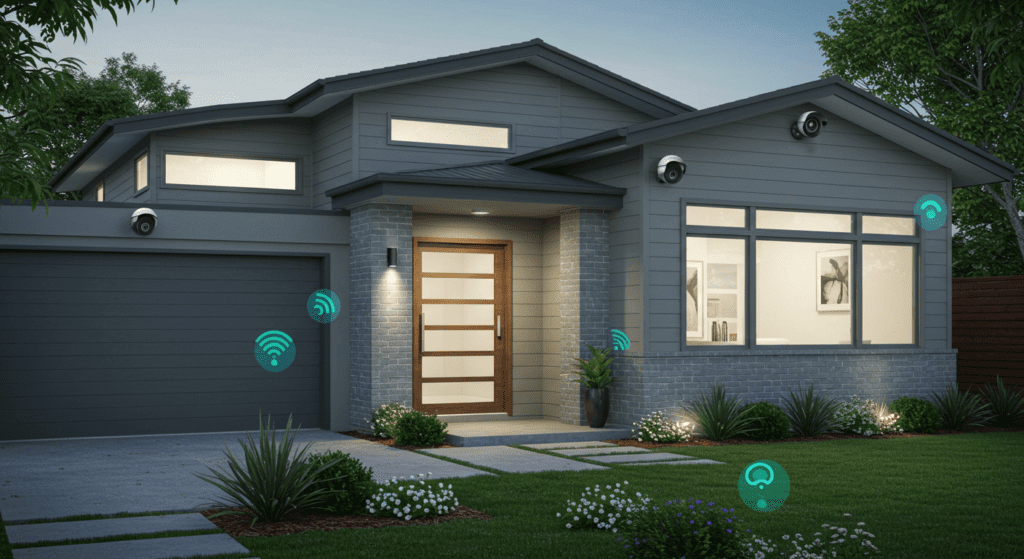- Assessing Your Coverage Needs
- Bundle Policies for Savings
- Improving Home Security Systems
- Upgrading Safety Features in Your Home
- Maintaining a Good Credit Score
- Reviewing Deductible Options
- Understanding Policy Discounts
- Regularly Reviewing and Comparing Quotes
- Maintaining Your Home to Lower Risks
- Working with a Trusted Insurance Agent
1. Assessing Your Coverage Needs
Before making any changes to your policy or shopping for new insurance, it is essential to evaluate your coverage needs. Take time to understand what your policy covers and if any gaps could leave you vulnerable. Ask yourself: Do you have sufficient protection against natural disasters, theft, or liability claims? Reviewing your property’s size, location, and the value of its contents allows you to tailor the coverage to your exact needs. A well-assessed coverage plan can help avoid paying for unnecessary extras while ensuring you have adequate protection in critical moments.

2. Bundle Policies for Savings
One effective way to reduce your insurance premiums is to combine multiple policies. Many insurance providers offer discounts when you bundle homeowners insurance with auto, life, or even umbrella policies under one provider. Bundling not only simplifies your financial management but also lowers your overall cost. Shop around for companies that provide such discounts, and consider consolidating your insurance needs with one provider. A bundled policy often results in both significant short-term savings on premiums and long-term benefits through easier claim management.
3. Improving Home Security Systems
Insurance companies appreciate proactive homeowners who make efforts to reduce potential risks. Upgrading your security system with modern alarms, surveillance cameras, and smart home technology may qualify you for discounts on your premiums. A robust security system minimizes the likelihood of theft or damage and can be an attractive selling point when bundling policies. Even smaller improvements like installing deadbolts or motion sensor lights can make a noticeable difference. When your home is better protected, insurance companies see you as a lower-risk client, which typically translates into a reduced premium.

4. Upgrading Safety Features in Your Home
In addition to a strong security system, investing in safety features can also benefit your insurance rate. Consider installing smoke detectors, carbon monoxide detectors, fire extinguishers, and sprinkler systems throughout your home. These upgrades not only offer peace of mind but also reduce the risk of serious damage during emergencies. Many insurance providers reward homeowners who have updated safety measures, with some companies offering a percentage discount for each installed system. The cost of these upgrades usually pays for itself over time through lowered premiums and potential lower repair or replacement costs during an incident.
5. Maintaining a Good Credit Score
Believe it or not, your credit score plays a significant role in determining your insurance premium. Studies have shown that homeowners with higher credit scores tend to pay lower premiums because they are seen as more responsible and less likely to file claims. Maintaining a healthy credit score is achievable through timely bill payments and keeping overall debt in check. Regularly check your credit report for errors and work to improve any areas of concern. A good credit score may not only reflect financial responsibility but also earn you discounts with several well-known insurance companies.

6. Reviewing Deductible Options
Another simple strategy to reduce your insurance premiums is to examine your deductible options. A deductible is the amount you agree to pay out of pocket before your insurance coverage kicks in. By choosing a higher deductible, you may benefit from lower monthly premiums. However, ensure you select a deductible that you can comfortably afford, as opting for a higher deductible means a larger expense if a claim is filed. It is essential to balance cost savings on premiums with the potential financial burden in the event of damage. Carefully reviewing your deductible choices can lead to a more affordable and manageable policy.
7. Understanding Policy Discounts
Insurance providers offer several discounts that many policyholders may overlook. Inquire about any discounts available that might apply to your situation. Discounts can range from loyalty reductions for long-term customers to savings for installing safety devices, systems, or even refurbishing aging homes. The key is to ask insurance representatives for a full list of discounts when purchasing or renewing your policy. Some companies provide discounts if you pay your premium in full or opt for automatic payment plans. Knowledge of available policy discounts often leads to significant savings without compromising the quality of your coverage.

8. Regularly Reviewing and Comparing Quotes
The insurance market is dynamic, with rates and policy features changing frequently. It is beneficial to regularly review your homeowners insurance policy and compare quotes from different providers. What worked best a year ago might not offer the best value now. Take the time to update any improvements you’ve made to your home or changes in your personal circumstances when seeking a new quote. Many experts recommend at least an annual review of your policy to ensure you consistently enjoy competitive rates and ample coverage. Don’t hesitate to switch companies if a better option becomes available. Regularly comparing quotes can be a key strategy in keeping your premiums low over time.
9. Maintaining Your Home to Lower Risks
Regular maintenance of your home can significantly reduce the risks that affect your homeowners insurance. Simple tasks like cleaning gutters, repairing roof leaks, and maintaining your heating and cooling systems can prevent small issues from becoming costly claims. Home insurers often consider the condition of your property when determining your premium. Well-cared-for homes with a documented history of maintenance are seen as lower risk, which can lead to more favorable rates. Creating a maintenance schedule helps ensure that every part of your home remains in good condition, reducing the likelihood of damage and unexpected expenses.

10. Working with a Trusted Insurance Agent
Navigating the intricacies of homeowners insurance can be challenging, which is why many homeowners benefit from working with a trusted insurance agent. An experienced agent knows the market well and can offer guidance on reducing premiums through various strategies. Agents can help evaluate your current coverage, suggest improvements, and possibly negotiate better terms with your provider. They are also knowledgeable about discounts and policy options that you might not be aware of on your own. By collaborating with an agent who understands your needs, you can structure an insurance plan that fits your budget while offering optimal protection.
Conclusion
Reducing your homeowners insurance premiums does not necessarily mean compromising on the coverage you need. With a few practical steps, you can achieve both affordability and comprehensive protection for your valuable asset. Begin by assessing your coverage needs and understanding whether you have everything you require to safeguard your home. Bundling your policies can simplify your financial life and result in substantial savings, while proactively improving security and safety systems demonstrates to insurers that you are invested in protecting your property.
Maintaining your credit score is critical when it comes to insurance rates, and reviewing deductible options helps you control both immediate and long-term expenses. Always ask your provider about available discounts and keep an eye on how your maintenance and upgrades reflect on your policy costs. Regularly comparing quotes from several insurers ensures you are getting the best deal for your evolving needs, and consistent home maintenance minimizes risks from unexpected damages.
Finally, remember that a trusted insurance agent can serve as a valuable resource throughout this process. Their expertise can guide you through the details, ensuring that every aspect of your home insurance is as cost-effective as possible. By taking these steps, you not only reduce your overall financial liability but also achieve peace of mind knowing that your home remains sufficiently protected.
Following these top tips for reducing homeowners insurance premiums ensures that you make informed decisions about your coverage. Whether by bundling policies, investing in better security systems, or closely monitoring your credit score, every action you take contributes to a better, more secure future for you and your family. The effort invested in understanding and applying these strategies often results in noticeable savings that you can use elsewhere in your personal budget.
Ultimately, a proactive approach to managing your homeowners insurance smartly balances risk and reward. By regularly evaluating all the elements that contribute to your premium and making small adjustments as needed, you build a resilient financial foundation. Lower premiums not only relieve your day-to-day monetary burdens but also allow you to invest more in the longevity and improvement of your cherished home.
Take the time to review each tip and see which strategies apply best to your situation. Keep detailed records of all maintenance, improvements, and communications with your insurer. This diligence pays off when you need to negotiate better terms or switch providers to maximize your savings. Every step that reduces risk from fire, theft, or natural disaster makes your home safer and your insurance premiums lower.
In the end, a well-protected home means a well-protected future. By following these actionable tips, you can enjoy affordable protection for your home, allowing you to focus on what matters most – living comfortably and securely with the assurance that your investment is safeguarded against life’s uncertainties.
